By Angeline P. Hoffman, White Mountain Apache
One way children can make a connection between history and their own lives is through storytelling that emphasizes self-image and the foundations of self-knowledge of one’s own people. The stories of indigenous people, past and present, are important because one must understand the larger context of life to gain perspective on personal experiences.


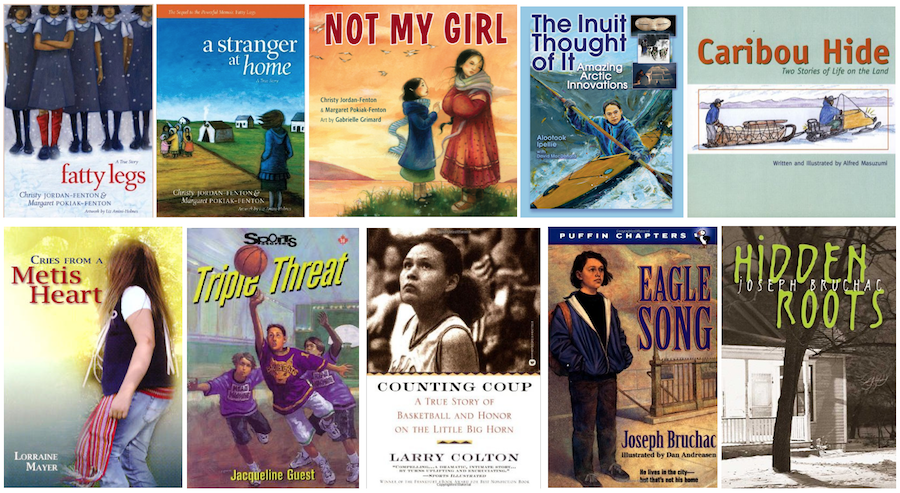
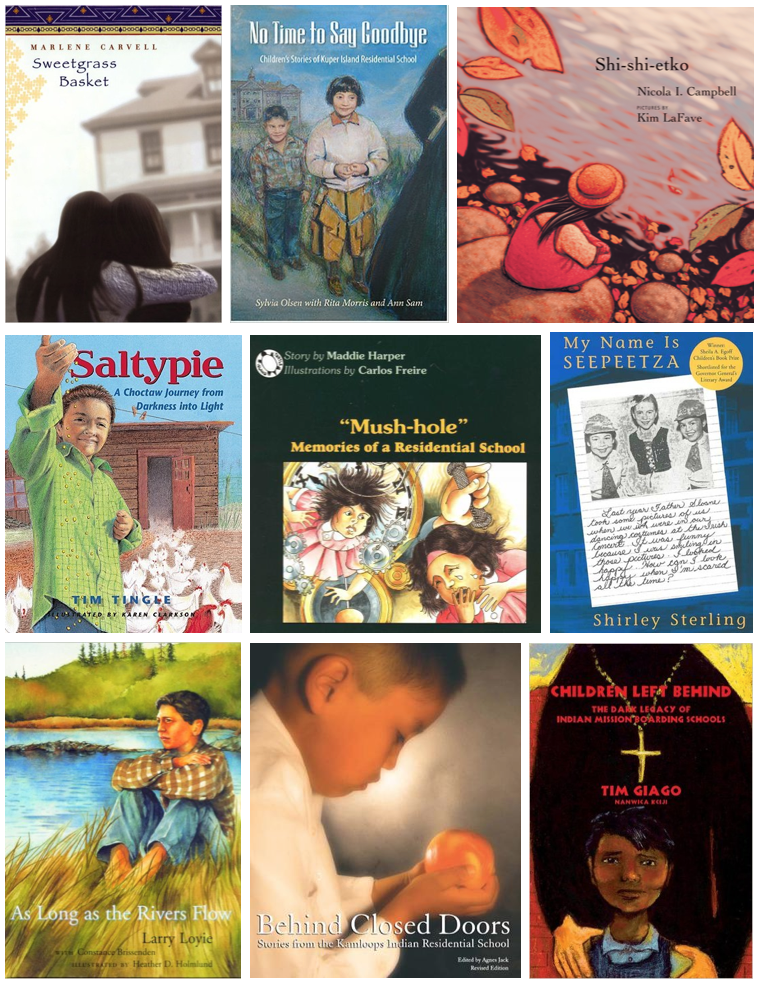
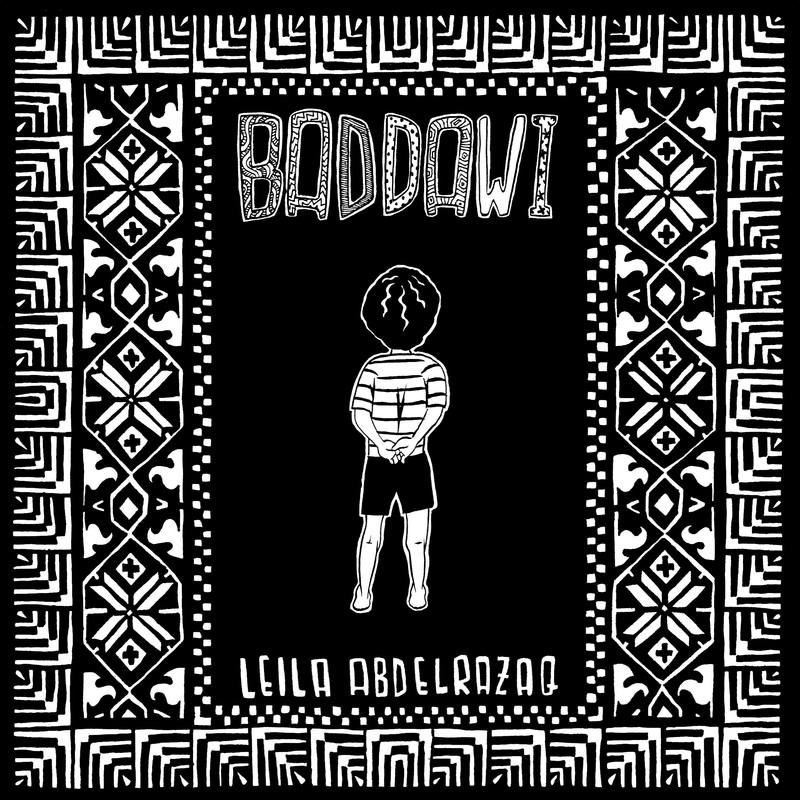 Baddawi by
Baddawi by 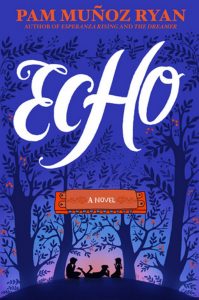 Echo by Pam Muñoz Ryan is a poignant story about the journey of a magical mouth harp (harmonica) through time and space. The masterful enmeshing of timeless fairytale and historical reality binds this powerful text into a strong narrative that highlights world events, prejudice, and social class distinctions. It all begins with Otto, who gets lost in a jungle where three sisters, bound by a witch’s curse, find him. Otto promises to break the curse by taking the harmonica out to the world. The harmonica, through its magical music, tangibly joins three children separated by place, which lifts the curse, freeing the three sisters.
Echo by Pam Muñoz Ryan is a poignant story about the journey of a magical mouth harp (harmonica) through time and space. The masterful enmeshing of timeless fairytale and historical reality binds this powerful text into a strong narrative that highlights world events, prejudice, and social class distinctions. It all begins with Otto, who gets lost in a jungle where three sisters, bound by a witch’s curse, find him. Otto promises to break the curse by taking the harmonica out to the world. The harmonica, through its magical music, tangibly joins three children separated by place, which lifts the curse, freeing the three sisters. 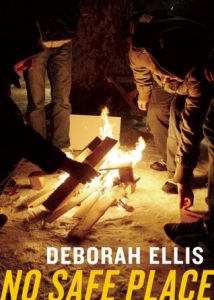 The well-executed plot of No Safe Place by Deborah Ellis follows the journey to freedom of three undocumented immigrant children. While the children struggle to reach the shores of England, a British orphan, released from the bonds of an oppressive uncle, joins them. These children, Abdul from Baghdad, Cheslav from Russia, Jonah from England, and the only female, Rosalia, a Romani, develop throughout the story. Ellis depicts a rich cultural background of the countries with distinct circumstances for each character. This story begins in France and culminates in England, providing a fine description of the traumatic lives many immigrants lead in France.
The well-executed plot of No Safe Place by Deborah Ellis follows the journey to freedom of three undocumented immigrant children. While the children struggle to reach the shores of England, a British orphan, released from the bonds of an oppressive uncle, joins them. These children, Abdul from Baghdad, Cheslav from Russia, Jonah from England, and the only female, Rosalia, a Romani, develop throughout the story. Ellis depicts a rich cultural background of the countries with distinct circumstances for each character. This story begins in France and culminates in England, providing a fine description of the traumatic lives many immigrants lead in France.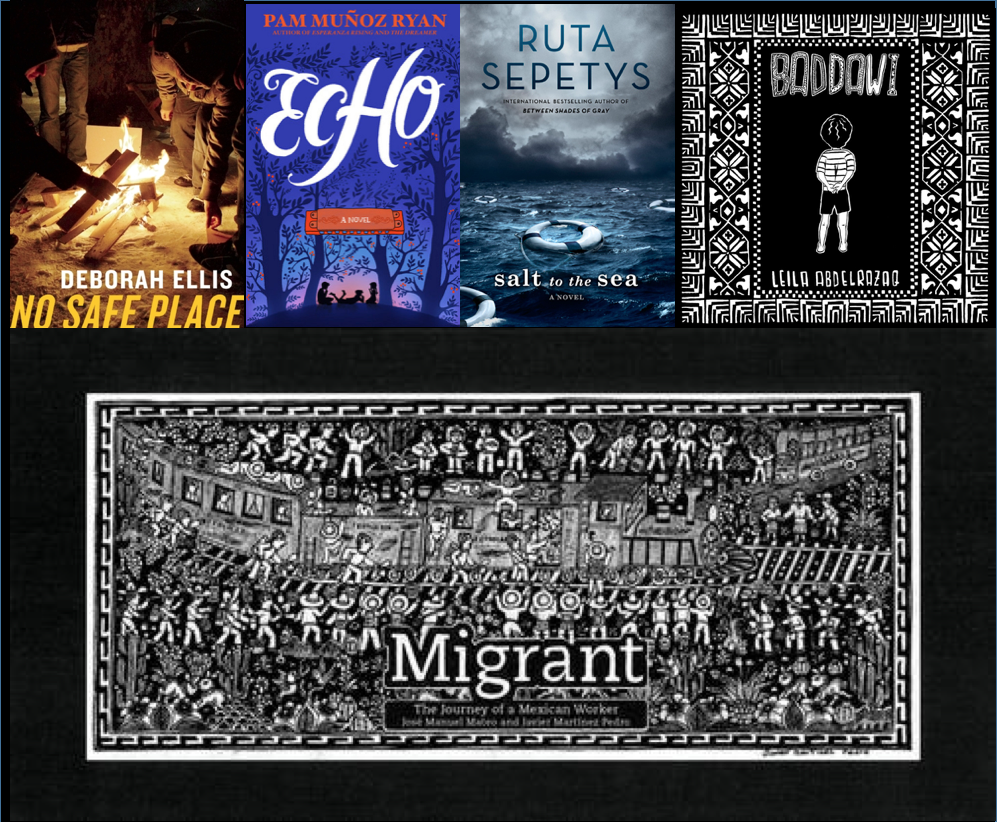
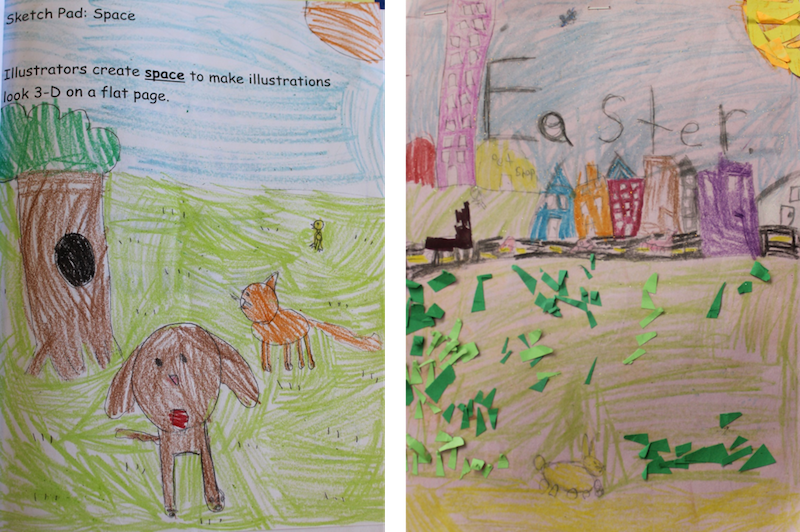
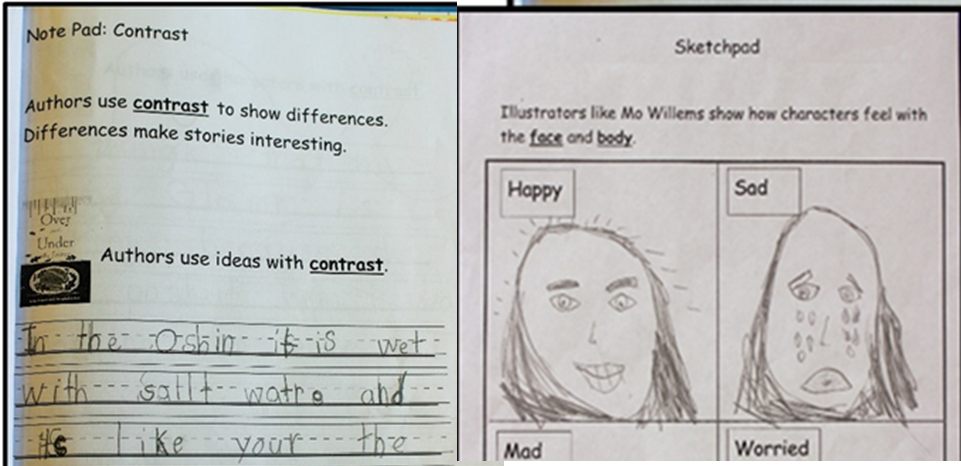
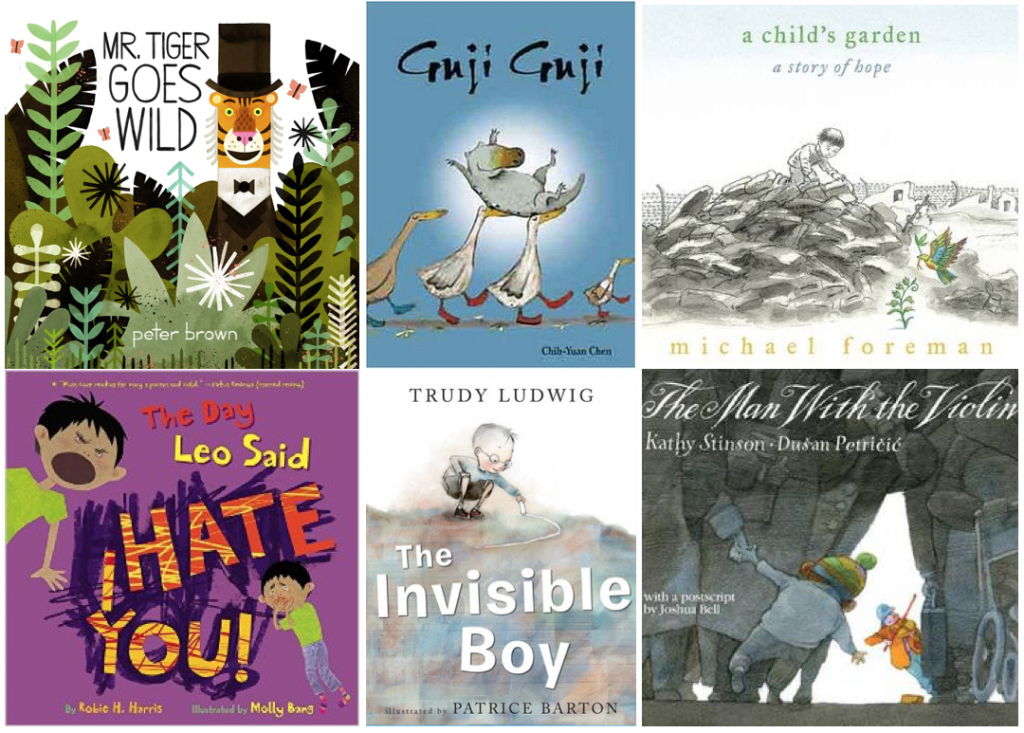
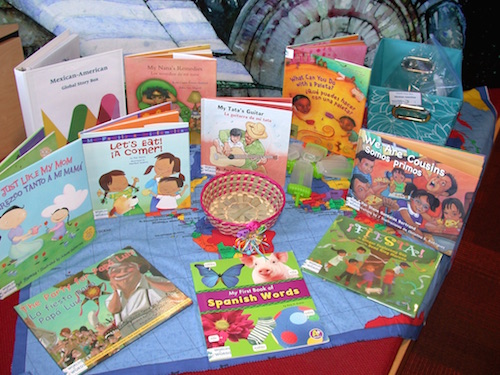 Picturebooks convey stories in both written text and pictorial text (art), with both texts being essential to telling the story (Kiefer, 1995; Sipe, 1998). The art has meanings or perspectives not offered in the written text just as the written text has meanings/perspectives not available in the art. When no written text is present, the story is told only through the art. Typically these books are referred to as wordless books. My co-researcher Ray Martens, an artist and art educator, however, calls them pictorial books to emphasize the importance of the art in telling the story rather than identify these books as lacking words.
Picturebooks convey stories in both written text and pictorial text (art), with both texts being essential to telling the story (Kiefer, 1995; Sipe, 1998). The art has meanings or perspectives not offered in the written text just as the written text has meanings/perspectives not available in the art. When no written text is present, the story is told only through the art. Typically these books are referred to as wordless books. My co-researcher Ray Martens, an artist and art educator, however, calls them pictorial books to emphasize the importance of the art in telling the story rather than identify these books as lacking words.